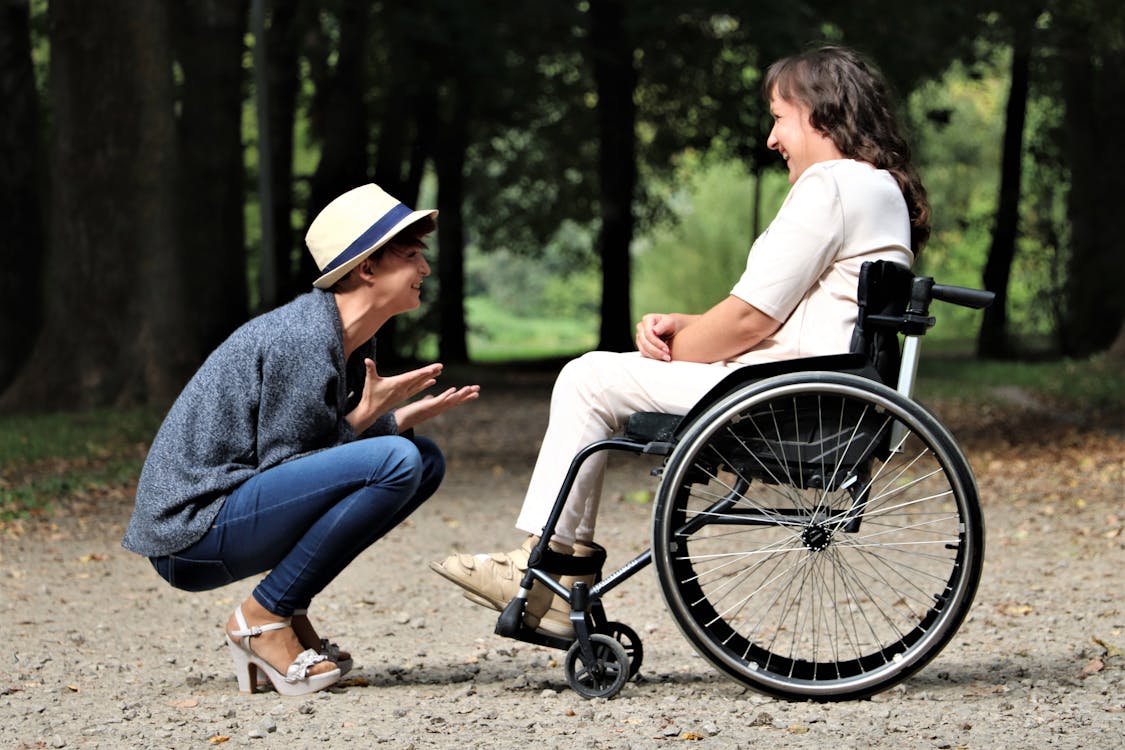What are the exact ways to take care of people with disability
Losing the ability to perform essential human functions like talking, walking, hearing, or seeing is one of the worst things that can happen to anyone. It could leave one excessively unhappy and depressed. To worsen matters, such people need to rely on others for essential day-to-day functions, which could be a lot.

Photo by Judita Tamošiūnaitė from Pexels
Taking care of someone with a disability is a challenge. However, some tips can make the entire process easy for both parties. It is a demanding job as you need to go out of your way to make such a disabled person comfortable with the best quality of life possible.
No one prays to experience disability. However, it could come up due to accident, illness, disaster, while some people could be disabled from birth. This article sheds light on simple tips anyone can use to make life easier for the disabled:
Watch YouTube videos, seek help from professionals and watch out for any sign of trauma or abuse that could hinder their wellbeing.
It sucks being disabled as you no longer have the capacity to go about basic and essential life functions. As a result, it is not uncommon for many people with disabilities to be depressed and irritable. With this, they might prove incredibly difficult to deal with and with little cooperation.
Make sure to support them with love and be prepared for resistance. Caring for the disabled involved being brave, kind, open-minded, optimistic, and above all, patient. While such experience will be complex, find joy in it and be grateful for the privilege of being a whole person.

Photo by Anna Shvets from Pexels
This involves getting as much information about their condition, alongside the best practices to help them. Discuss with other family members, and let everyone know their role in caring for the person. Such knowledge will help you make an informed decision and guide you towards things to expect as you care for the person.
Watch YouTube videos, seek help from professionals and watch out for any sign of trauma or abuse that could hinder their wellbeing.
A disabled person has probably lost using some of their essential body parts like the hands, legs, eyes, etc. As a result, such people need extra care and assistance in their daily activities.
In caring for the disabled, ensure every possible hazard or source of injury is off their way. Make sure their room is always bright, get obstructions off the way, install handrail in the toilet and bathroom, if possible, install a wheelchair lift for easy movement up and down the stairs.
Ensure they are not curled up in bed all day long watching movies or reading magazines. Getting exercise will go a long way to let go of stress and lift their mood. For better support, consider buying a 4 wheel mobility scooter which will help ensure optimum mobility.
Try to help them have mild exercise and sweat; It releases endorphin – the feel-good hormone. This will go a long way to lift their spirit and avoid depression. Make sure to discuss with their doctor before attempting any form of exercise.

Photo by Anas Aldyab from Pexels
People who use a mobility aid like a wheelchair, cane, or walker count such aid as part of their personal space. As a result, make sure always to respect such spaces. Even if you intend to help, be sure not to push their wheelchair unless you got their permission.
In the same manner, respect their aids and avoid touching, moving, and leaning on their mobility aids. It is primal to their safety as well. It is wrong to assume that they need assistance. Offer assistance and wait for their response.
Disable people are prone to injury during movement. As a result, you should be meticulous when it comes to lifting or moving them. As long as the fund is not a problem, try investing in lifting machines to assist them.
The following are essential lifting techniques that can guide you when lifting the disabled:
A clear, straightforward sentence is essential when working with people with cognitive issues or other developmental disabilities. In all your relationships with them, come down to their level and match your choice of words and vocabulary to theirs.
Try to be as audible as possible without shouting. It can send the wrong message. Except you were informed otherwise, remember they can make their own decision. Don’t try to talk for them; allow them to finish their sentences and do not interrupt.

Photo by Cliff Booth from Pexels
Caring for the disabled is one of the most challenging lines of the job. It requires tenacity, patience, strength, and empathy.
This article has explored seven ways to help you take care of people with disabilities without losing your mind.